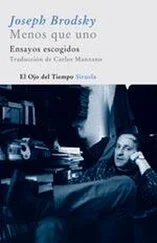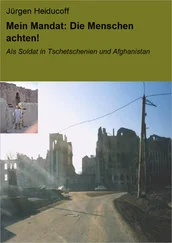At the Colaba causeway, as the bus stood stranded in a jam, he saw kids beg near the window of a taxi. The young couple inside sat with strong defiant faces. How they would have loved to give a rupee, but they had read investigative stories that appeared at least once every year in English newspapers on the cruel begging syndicates that were rumoured to exploit children. By withholding one rupee they were hitting hard at the syndicates, apparently. So much philosophy for a one-rupee transaction.
Then he saw a sight on the pavement that he would later recount to Oja with slight exaggeration. A woman came out of Theobroma — The Pastry Shop. Urchins often stood outside its glass door and gawked. She made a benevolent face at them and appeared to ask them to stand in a line. They stood. There were six of them. They looked like stray dogs at the parcel she was holding. At the head of the line the woman stood in the glow of goodness and opened the packet in her hand. The urchin assembly collapsed. All of them pounced on her, laughing. Many more came from nowhere and joined the attack on the cake. The woman held on to the packet, first with a quiet severity, looking around a bit embarrassed. She began to yell, ‘Line, line.’ She tried to slap a few but missed. The children yelled with laughter and tugged at the packet. The cake fell on the pavement. They crawled all over it and ran away holding large pieces. Two dogs rushed to lick the strewn crumbs on the pavement. Ayyan hoped to catch the woman’s eye and laugh, but she was preoccupied with disgust.
He thought of her shocked face for the rest of the ride. The image stayed with him when he reached Churchgate and as he waited for the train with the monstrous evening crowd that generated its own heat. He thought of her face as he stood silently inside the compartment in the tight squeeze of warm wet men all around. Her stunned face grew and grew in his mind until it was a giant hoarding. By the time he reached BDD he had forgotten her, but his lungs felt good.
He went through the yellow gloom of the broken ways, avoiding the eyes of drunken men in loose shorts. On the ancient colonial stairway of Block Number Forty-One, a bunch of old friends were arguing about something.
‘Mani, this guy says it is not possible,’ a man said. ‘Why don’t you tell this fellow that you can make out if a girl has screwed by the way her arse moves.’
Ayyan said it was possible. He took a drag from someone’s cigarette. From the corner of his eye, he could see that one of the men, a faint sickly fellow, was looking at him quite seriously. That meant he wanted to borrow some money. So Ayyan moved on.
ADI WAS ON the floor, his slight frame bent over a notebook. He was writing something and looking distraught. His T-shirt said, ‘There are 10 kinds of people in the world. Those who understand binary and those who don’t.’ Ayyan had found it in the ladies’ section of a shop. He bought it even though he did not get the joke. He probably bought it because he did not understand it. It annoyed him. There was always something that most people, very ordinary people, understood and he didn’t. Later, he found an explanation on Wikipedia, and how the number 2 was written as 10 in the binary system. He then read about binary codes, a whole language built on the arrangement of zeros and ones, and he grudgingly conceded that it was so clever that even if he had been born into privilege, he might not have been smart enough to invent it.
Oja’s long dark hair was still wet after her evening bath and it dampened the back of her red gown. She was smelling of Chandirka, their family soap as ordained by Ayyan. She was sitting on the floor and cutting her toenails with a blade. She did not feel like watching TV that evening, so there was a peaceful stillness. She threw a look at the boy and then at her husband, and they both chuckled at how miserable Adi was at that moment. ‘Imposigen,’ Oja said. ‘Imposition’ was one of the few English words she knew, though she could not pronounce it, just as most people in the world could not pronounce vazhapazham, which she could. She knew about imposition because very often Adi’s teachers gave one to the boy. This evening, he had to write ‘I won’t talk in the class’ two hundred times.
‘Adi, tell your father who you were talking to,’ his mother said.
‘I was talking to myself.’
‘And what were you saying?’
‘I don’t remember.’
‘You remember all the science rubbish, but you don’t remember what you were telling yourself?’
Adi continued to write in silence.
‘This boy never answers me properly,’ Oja said, looking accusingly at Ayyan. ‘You have spoilt him. All those secrets you two have is not good for him. He talks to me only when he wants food.’ That reminded her of something. ‘He has left half the food in the lunch-box.’
‘Did you give him Lady’s Finger?’
‘My god, no! This boy is already abnormal. Lady’s Finger makes you do sums better. I would never give it to him.’ And she said in an affectionate way, ‘Strange boy. He has not troubled the science teacher for some time. I wonder why. But it will come soon, the next summons from the Principal.’
‘He has done something else,’ Ayyan said, with a mysterious smile.
‘What is it?’
‘I can’t tell you now.’
‘Tell me.’
‘You will know in the morning.’
‘What is it?’
‘Don’t waste your time. I am not going to tell you. Wait till morning.’
‘Why morning? What’s going to happen?’
‘Wait and see.’
‘Adi,’ she said, trying to be stern. ‘What have you done?’
‘I’ve not done anything.’
‘What is going to happen in the morning?’
‘I don’t know.’
‘What do you mean, you don’t know?’
‘Don’t confuse me,’ Adi said, annoyed.
‘Come here,’ she screamed. Adi threw the pencil down and came to his mother. ‘Look here,’ she told him, trying to look severe. ‘You are too young to keep secrets from me. What is happening? I have to know. Otherwise I will give you a slap and the truth will come out of your mouth.’
‘I’ve not done anything,’ he said.
‘If you keep doing only what your father asks you to do, you will come to grief, boy. A lamb that follows a pig will eat shit.’
‘Don’t confuse me.’
‘Tell me, what have you done? What’s the secret?’
Adi turned to his father in exasperation.
‘Don’t bother him,’ Ayyan told his wife, and that was that.
Adi went back to his imposition. In the brief silence they heard the faint noise of horns, boys playing cricket and the unmistakable sound of a man, somewhere, beating his wife. Adi raised his head from his notebook and smiled at his father. Ayyan smiled back. That set off Oja again.
‘What is it?’ she almost pleaded.
Ayyan pointed a finger upwards, his eyes inviting her to follow him.
The attic was built a few weeks ago, in the tremors of a carpenter’s violent hammer, its every blow landing on Ayyan’s heart and shaking a secret pride within. He never thought the day would come when he too would build an attic. It reminded him of the failed men of BDD and their desperation to sleep with their wives, away from the sight of the others. Ceilings were high in BDD and almost everyone had an attic. Most of the loud, insufferable children of the chawls were conceived in the attics. In the homes where there were more than one married couple, they took weekly or even daily turns to use the elevated bedroom. The conjugal attic was a sign here. That a man had failed to escape, that he was now stranded.
Oja looked cautiously at her son. He was absorbed in his imposition. Ayyan had a packet with him now and she was curious to know what it was. She had not seen it when he came home. It was remarkable, she thought, how her husband hid things and made them spring out when he wanted them to. He pulled down a folding ladder and climbed up into the loft. Oja followed. The attic was about six feet by three. There was a thin mattress and a blue table fan, and a lot of books that Oja wanted to throw away. They crawled on to the attic floor and sat there.
Читать дальше












